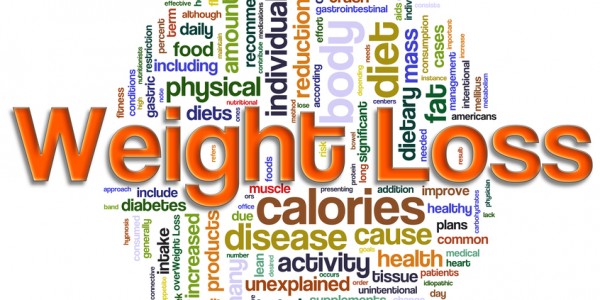[dcwsb inline="true"]
Leptin, a hormone that plays a key role in regulating energy intake and energy expenditure, may be one of the most important hormones in your body that will determine your health and lifespan. Insulin is another, and the two work in tandem.
Both insulin and leptin resistance are associated with obesity, and impairment of their ability to transfer the information to receptors is the true foundational core of most all chronic degenerative diseases.
Metabolism can roughly be defined as the chemistry that turns food into life, and therefore insulin and leptin are both critical to health and disease. Insulin and leptin work together to control the quality of your metabolism, and, to a significant extent, your rate of metabolism.By acquiring a better understanding of how leptin and its receptor interact, researchers now believe they will be able to find new treatments for obesity and other metabolic disorders such as type 2 diabetes, as well as inflammatory diseases like rheumatoid arthritis and psoriasis.
WHAT EXACTLY IS LEPTIN?
Leptin is a very powerful and influential hormone produced by your fat cells. Your fat, by way of leptin, tells your brain whether you should be hungry, eat and make more fat, whether you should reproduce, or (partly by controlling insulin) whether to engage in maintenance and repair. In short, leptin is the way that your fat stores speak to your brain to let your brain know how much energy is available and, very importantly, what to do with it.Therefore, leptin may be on top of the food chain in metabolic importance and relevance to disease.
If your leptin signaling is working properly, when your fat stores are “full,” this extra fat will cause a surge in your leptin level, which signals your brain to stop feeling hungry, to stop eating, to stop storing fat and to start burning some extra fat off.
Controlling hunger is a major (though not the only) way that leptin controls energy storage. Hunger is a very powerful, ancient, and deep-seated drive that, if stimulated long enough, will make you eat and store more energy. The only way to eat less in the long-term is to not be hungry, and the only way to do this is to control the hormones that regulate hunger, the primary one being leptin.
HOW DO YOU BECOME LEPTIN RESISTANT?
You become leptin-resistant by the same general mechanism that you become insulin-resistant – by continuous overexposure to high levels of the hormone. If you eat a diet that is high in sugar (particularly fructose), grains, and processed foods – the same type of diet that will also increase inflammation in your body – as the sugar gets metabolized in your fat cells, the fat releases surges in leptin.
Over time, if your body is exposed to too much leptin, it will become resistant, just as your body can become resistant to insulin.The only known way to reestablish proper leptin (and insulin) signaling is to prevent those surges, and the only known way to do that is via diet. As such, diet can have a more profound effect on your health than any other known modality of medical treatment.
A strategic whole food diet, as detailed in my free nutrition plan, that emphasizes good fats and avoids blood sugar spikes coupled with targeted supplements will enhance insulin and leptin sensitivity so that your brain can once again hear the feedback signals from these hormones.
OBESITY HELPS SPUR CANCER'S GROWTH, NEW STUDY SUGGESTS
Leptin and insulin resistance is front and center of the issue of obesity, which is now a problem of epic proportions as it increases your risk for a wide variety of other serious diseases. At least 20 different diseases and conditions are directly attributable to being overweight. This societal problem has emerged in just the past four decades, in large part due to sorely misguided dietary guidelines.
One disease related to excess weight is cancer. And according to recent research, being obese promotes the growth of existing tumors regardless of diet, which may help explain why lean cancer patients often have better outcomes than their obese counterparts.The animal study, published in the Oct. 15 issue of the journal Cancer Research, showed that tumors in obese mice grew much faster than in lean mice eating the same diet.
According to the authors:
“In this study, we show that obesity facilitates tumor growth in mice irrespective of concurrent diet, suggesting a direct effect of excess white adipose tissue [fat tissue]. When transplanted into mice, adipose stromal cells can serve as perivascular adipocyte progenitors that promote tumor growth, perhaps helping explain the obesity-cancer link.”
The researchers discovered that the presence of cancer triggered adipose stromal cells – “white” fat cells – to migrate into the blood stream. Once these cells come across a tumor, some of them help provide oxygen and nutrients to the tumor, thereby feeding the growth of the cancer.
Lead researcher Mikhail Kolonin told MedicineNet:
“The fact that these cells are present in tumors is still an emerging concept. We have shown that not only are they present, but they are also functional and affect tumor growth. Identifying the signals that cause these cells to be recruited to tumors and finding ways to block them might provide a new avenue of cancer treatment.”
PROTEIN INTAKE ALSO CRUCIAL FOR CANCERS
Earlier this month an Interview with Dr. Ron Rosedale, one of the first physicians in the U.S. that started measuring leptin levels clinically, covered the major importance that excessive protein intake can have on cancer growth.Eating excessive protein can be an additional synergistically powerful mechanism. When you consume protein in levels higher than one gram of protein per kilogram of LEAN body mass you tend to activate the mTOR pathway, which will radically increase your risk of cancers. It is very easy to consume excess protein and my guess is that most people reading this are. I know I was, and as a result of this new insight I have reduced my protein intake by about half.
To determine your lean body mass find out your percent body fat and subtract from 100. So if you are 20% body fat you would have 80% lean body mass. Just multiply that times your current weight to get lean body mass. For most people this means restricting protein intake from 35 to 75 grams. Pregnant women and those working out extensively need about 25% more protein though.
Of course when you reduce protein you need to replace it with other calories, so the key to replace the lost calories with high-quality fats such as avocados, butter, coconut oil, nuts and eggs. It is also very helpful to avoid eating anything for three hours before going to bed as this allows you to have relatively low blood sugars while you are sleeping. This is another good trick to move your body to fat burning mode.
REDUCE OBESITY TO QUENCH TUMOR POTENTIAL
As stated in the featured article, the implications are clear: “reduce obesity before the appearance of tumors and after.” Unfortunately, there was no mention at all about the role of lifestyle in reducing cancer-boosting “white” fat cells… Again, the focus is on developing drug treatments to convert cancer-boosting “white” fat cells to less harmful “brown” fat (a heat-generating type of fat that burns energy instead of storing it).If you hinge your health and well-being on that, you're likely going to miss the boat and join the ranks of cancer statistics. Research has shown that certain groups of people tend to have more brown fat than others, and there are direct correlations between the activation of brown fat and metabolic measures of good health.
For example:
- Slender people have more brown fat than obese people do
- Younger people have more brown fat than elderly people, and
- People with normal blood sugar levels have more brown fat than those with high blood sugar
So is there a way to convert harmful white fat into health promoting brown fat, without using a drug? Yes, there is. In one mouse study, the animals converted white fat into brown fat simply by exercising. The study, published in the journal Disease Models and Mechanisms in May 2012 found that, during exercise, the animals' muscles released an enzyme called irisin, which triggered the conversion white fat cells to brown. Another study published in Nature, also suggests irisin may be a key to explaining the therapeutic benefits of exercise on metabolic disease.
The authors write:
“Irisin acts on white adipose cells in culture and in vivo to stimulate UCP1 expression and a broad program of brown-fat-like development. Irisin is induced with exercise in mice and humans, and mildly increased irisin levels in the blood cause an increase in energy expenditure in mice with no changes in movement or food intake. This results in improvements in obesity and glucose homeostasis.”
SUMMARY
So to summarize: Insulin and leptin resistance are core factors in obesity, which in turn is a risk factor for cancer and may boost tumor growth. But the answer lies not in a pill.To reverse insulin and leptin resistance: Avoid, sugar, fructose, grains, and processed foods
Eat a healthful diet of whole foods, ideally organic, and replace the grain carbs with: One gram of protein per kilogram of LEAN body weight
As much highly quality healthful fat as you want (saturated and monosaturated). Most people need upwards of 50-70 percent fats in their diet for optimal health. Good sources include coconut and coconut oil, avocados, butter, nuts, and animal fats. Also take a high-quality source of animal-based omega-3 fat, such as krill oil.
Similarly, while researchers investigate the pharmaceutical avenues to convert white fat cells to brown in an effort to reduce the potential for cancer growth, other research has already shown that this can likely be achieved through exercise.
www.mercola.com



